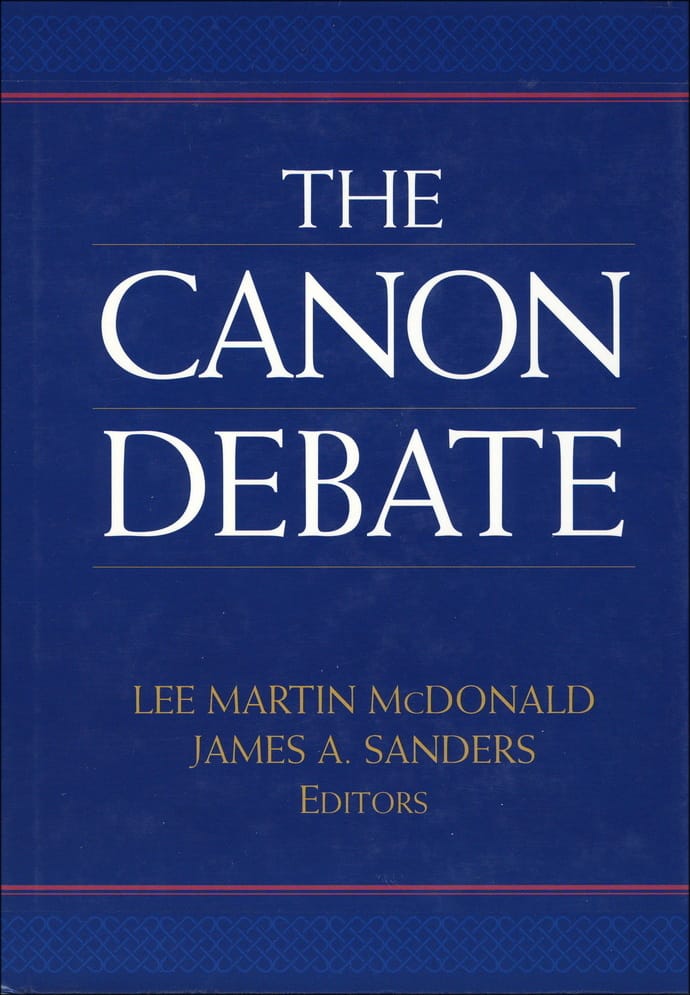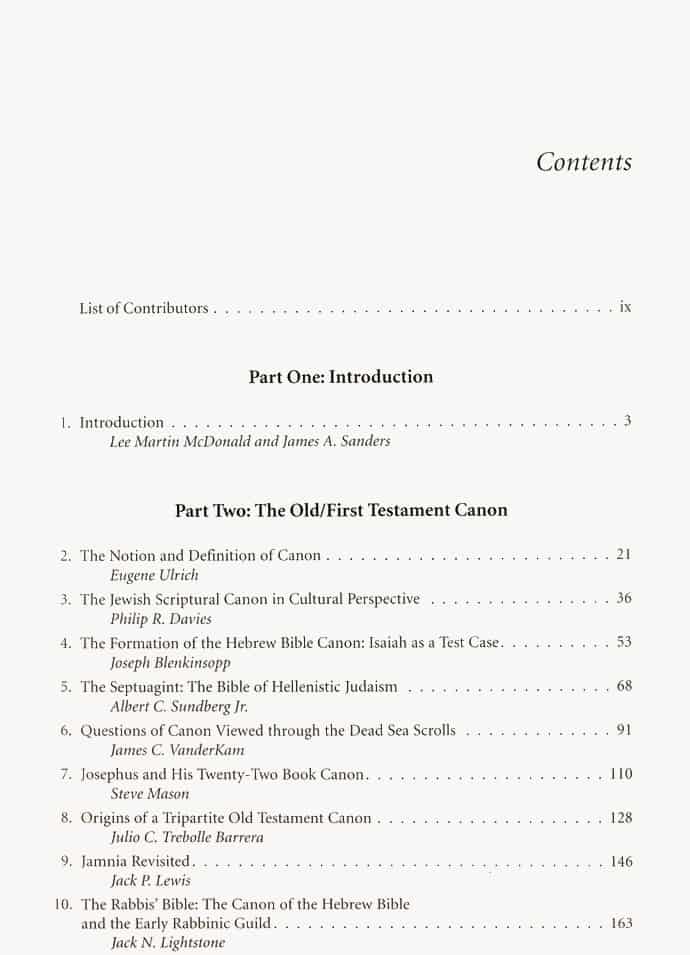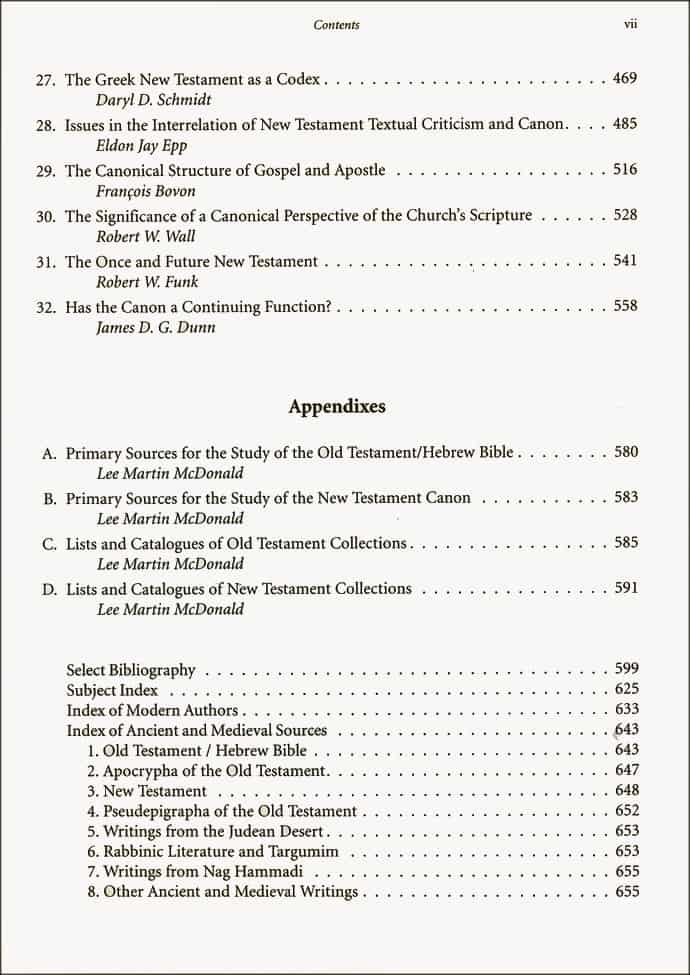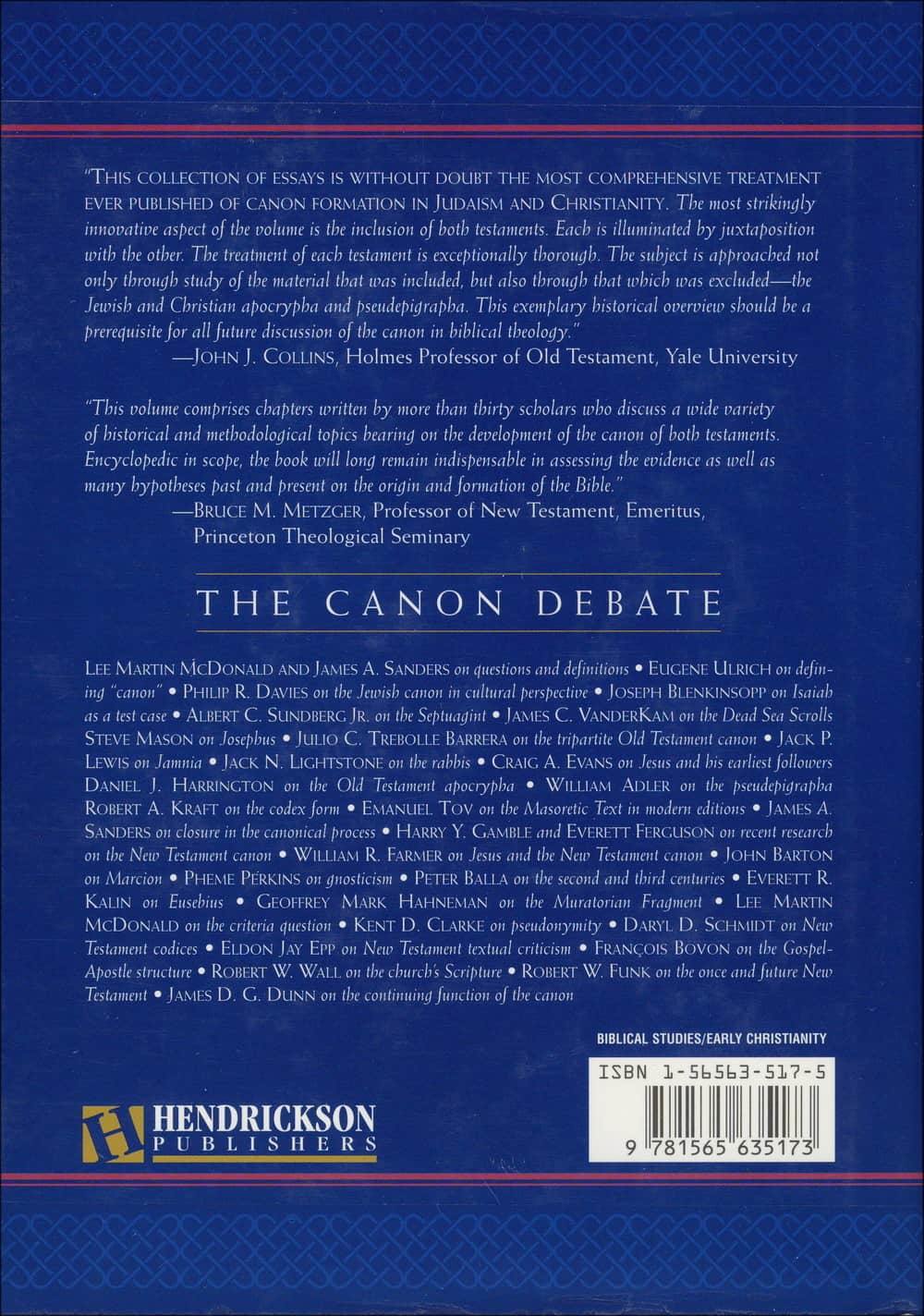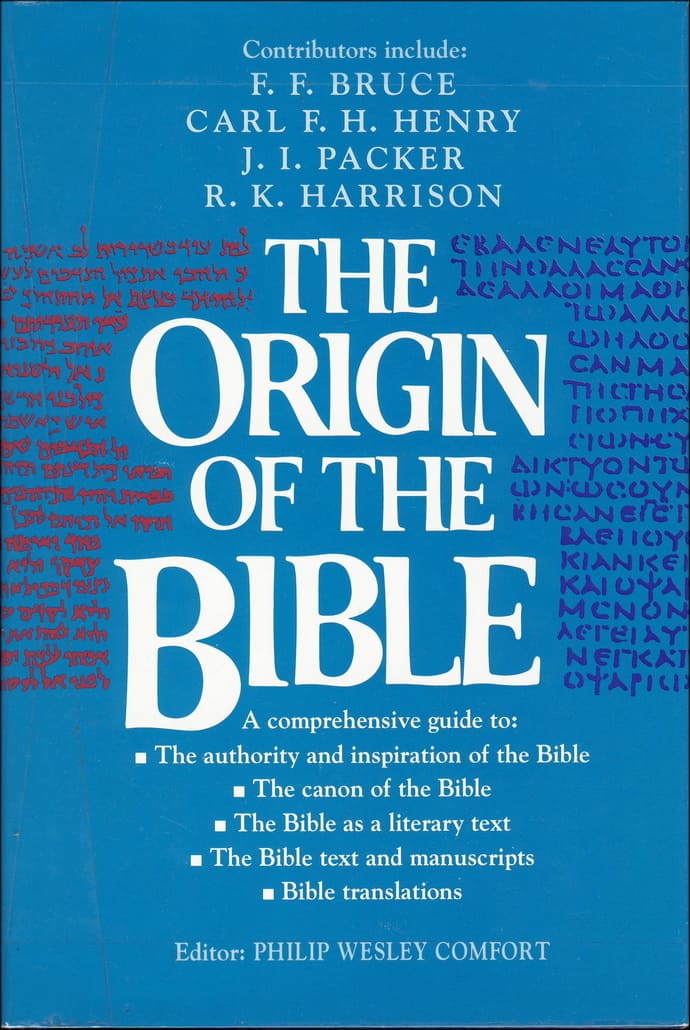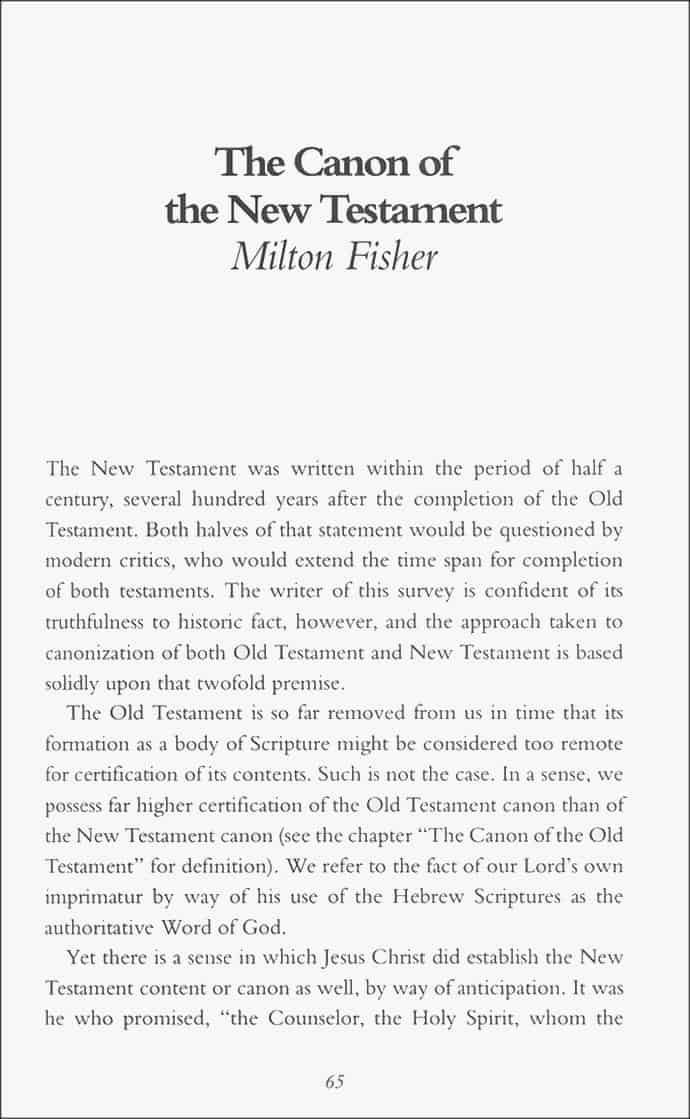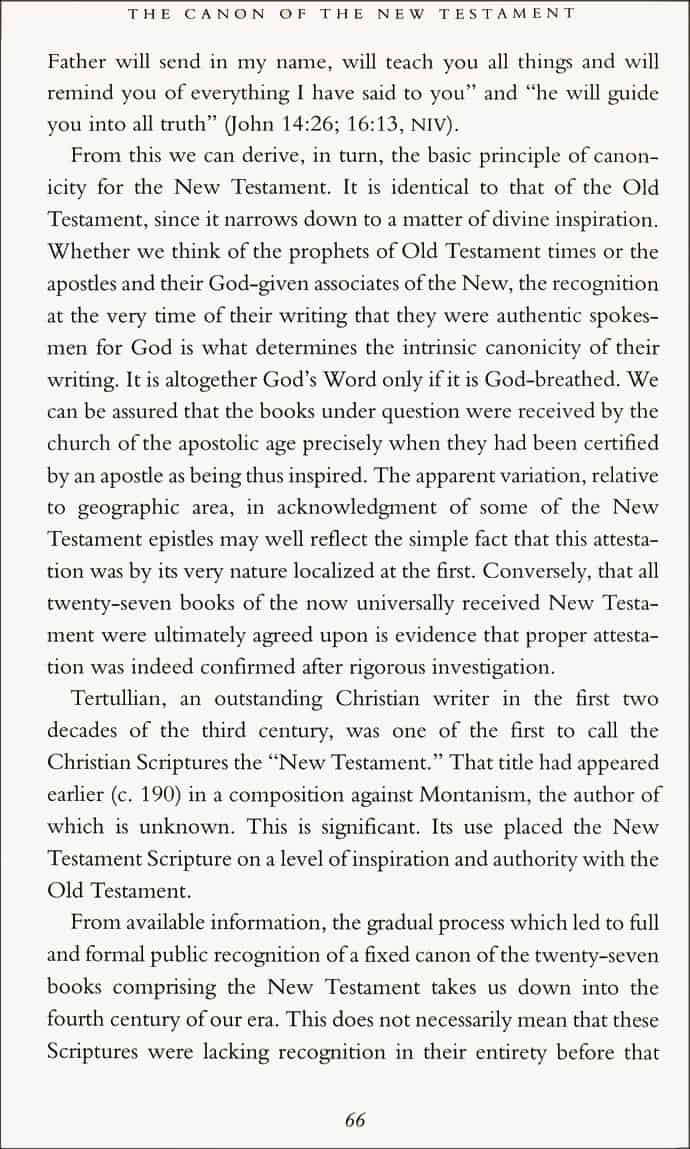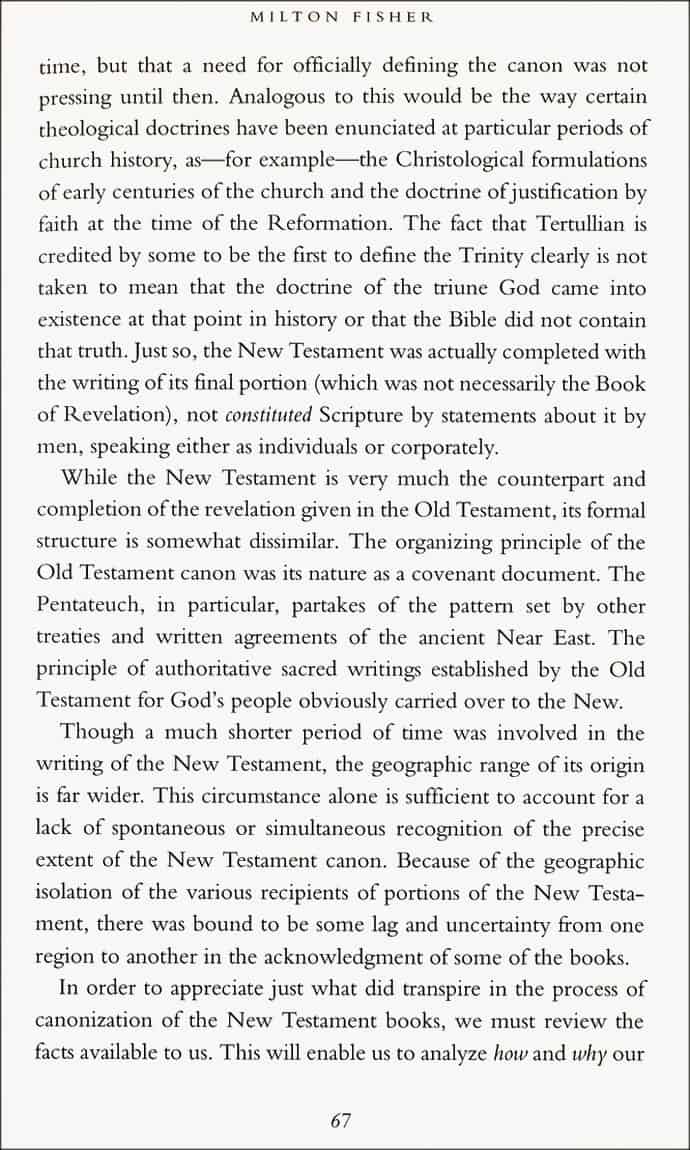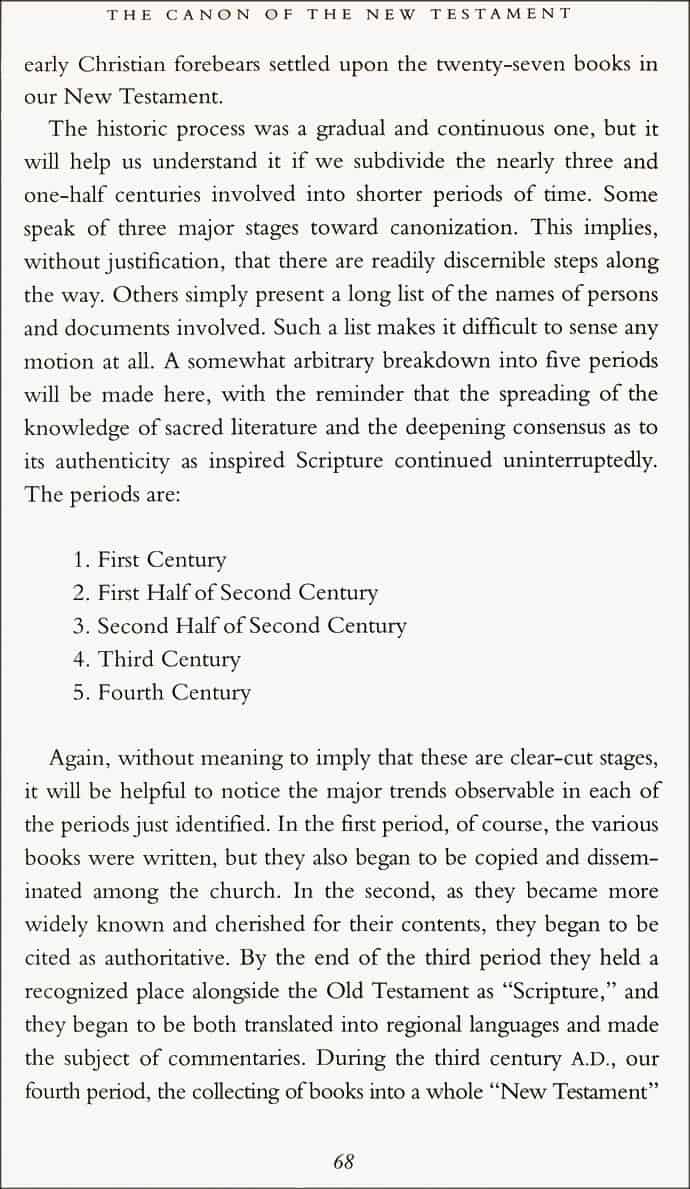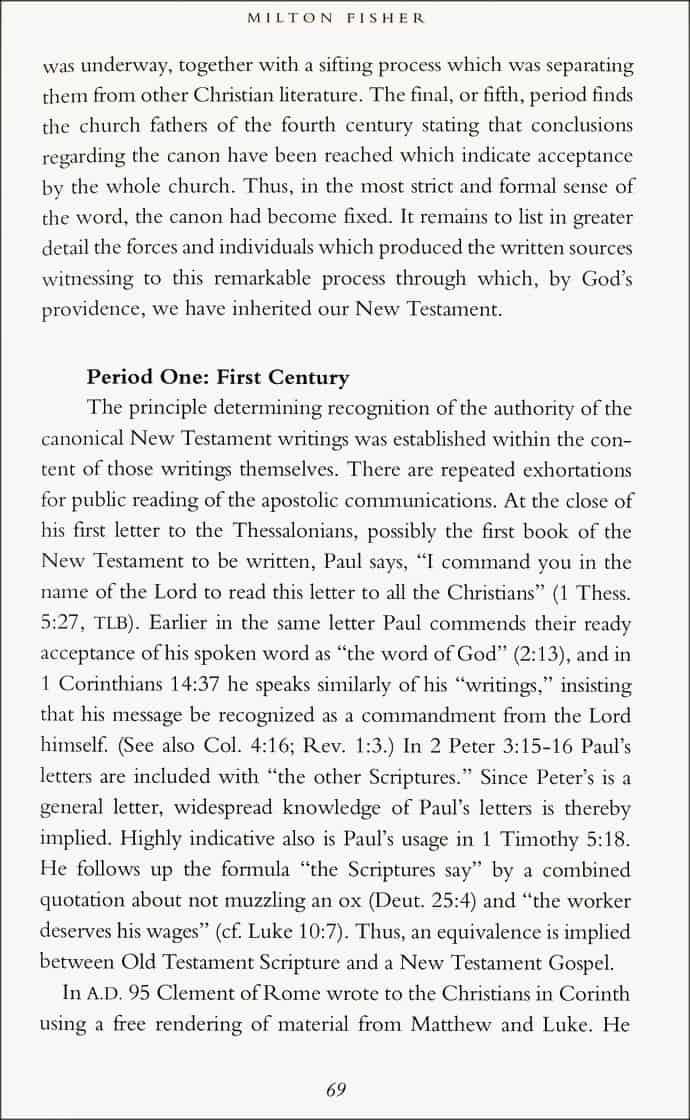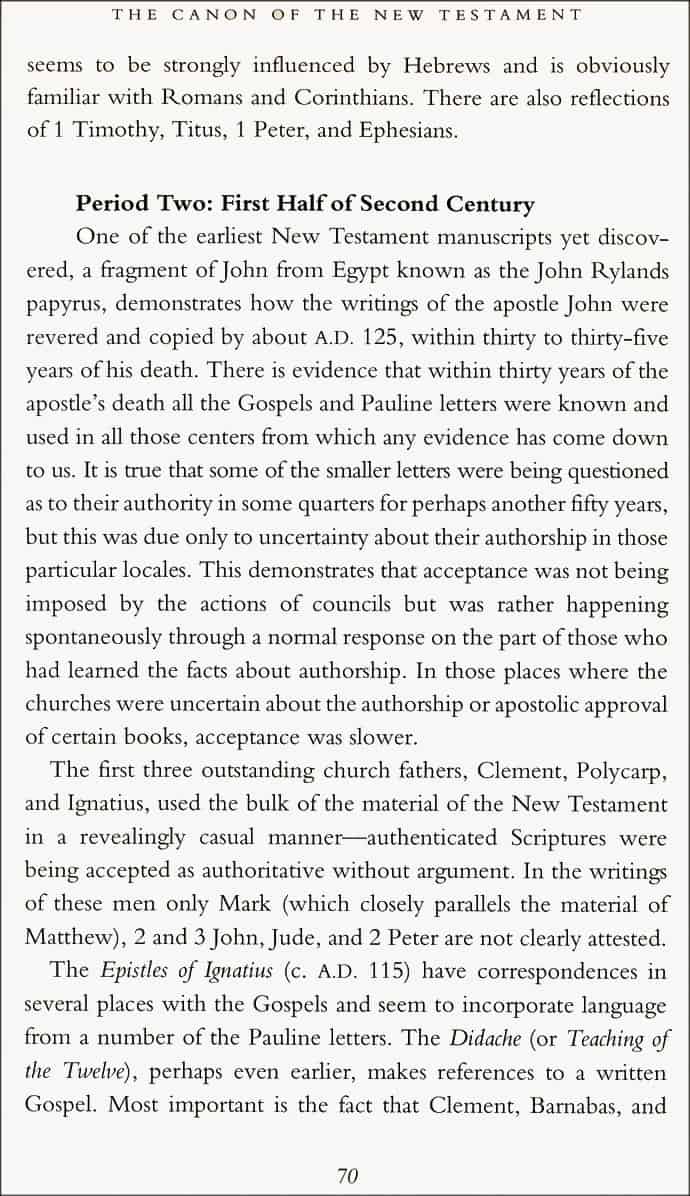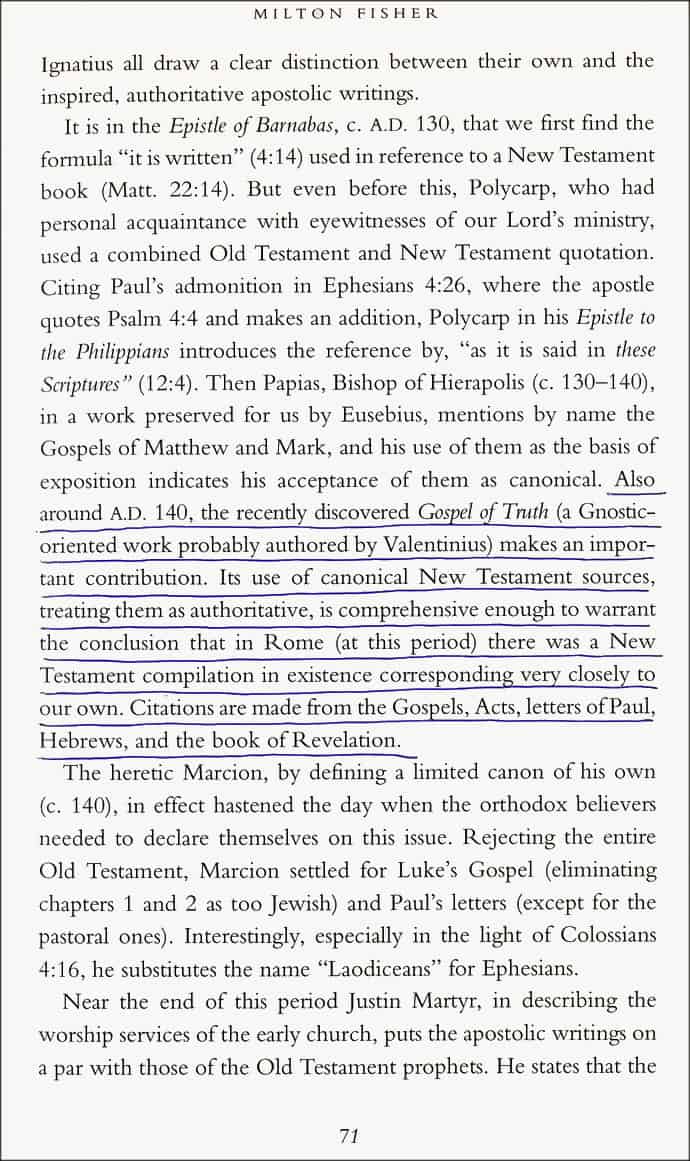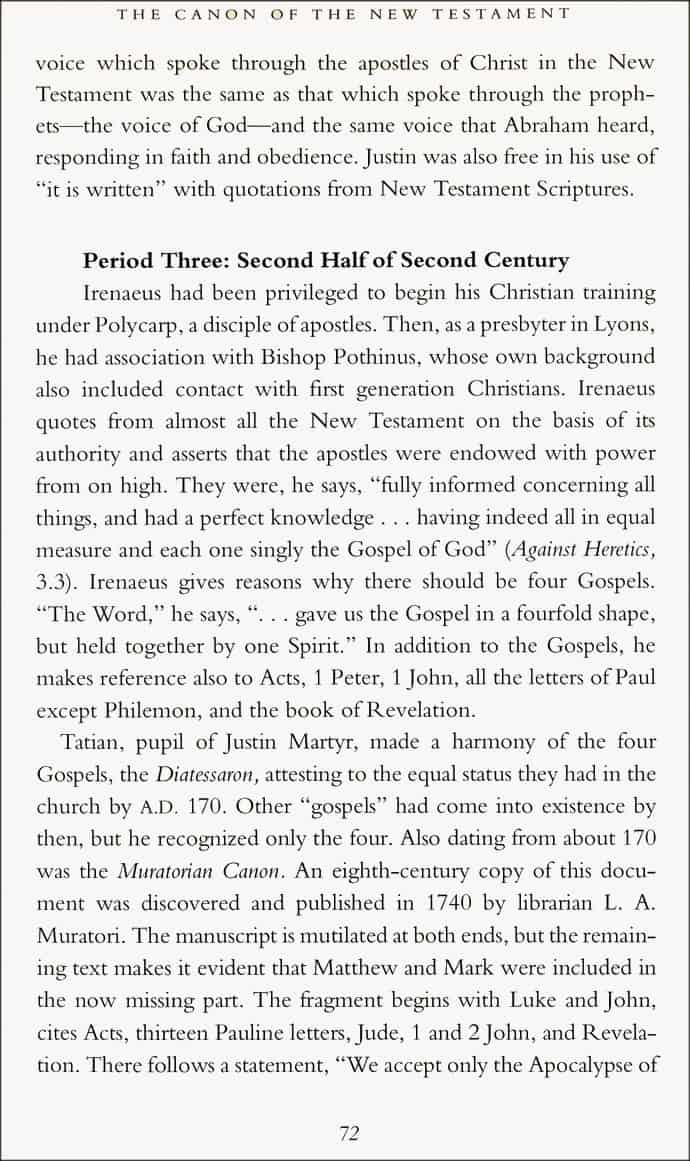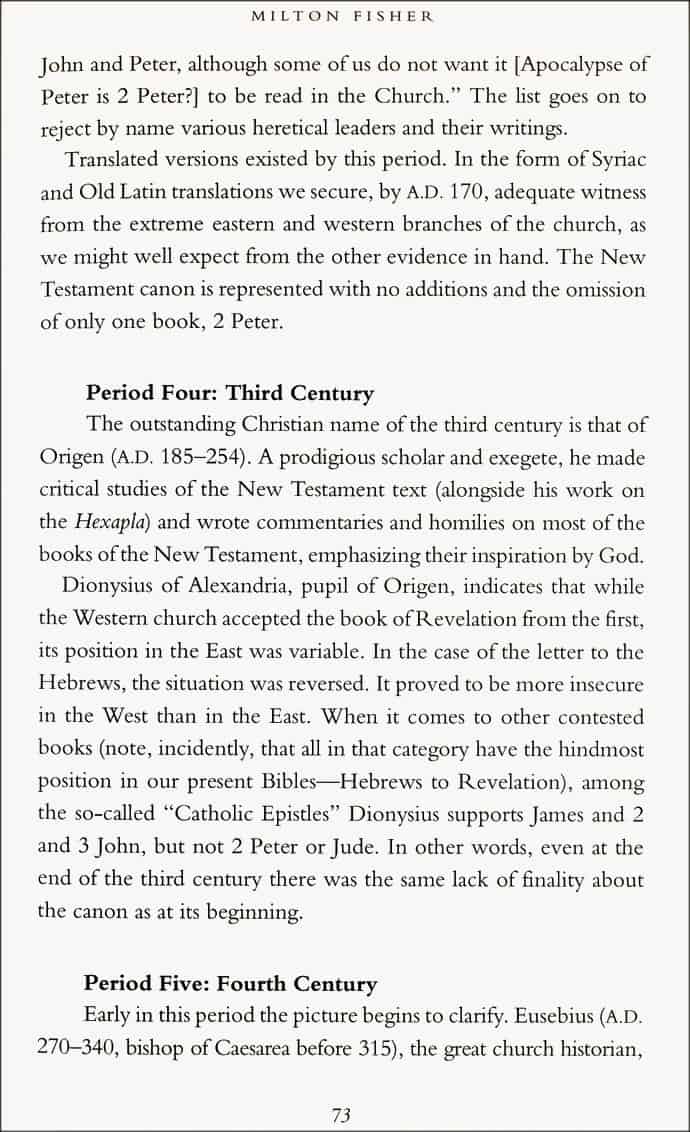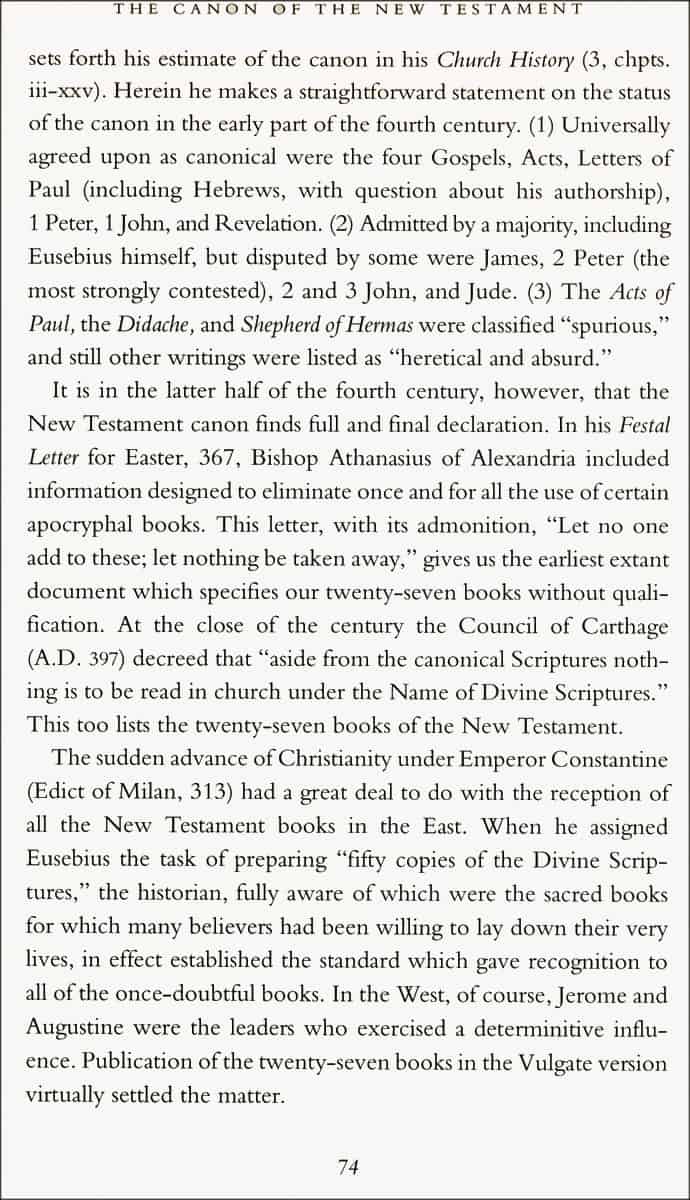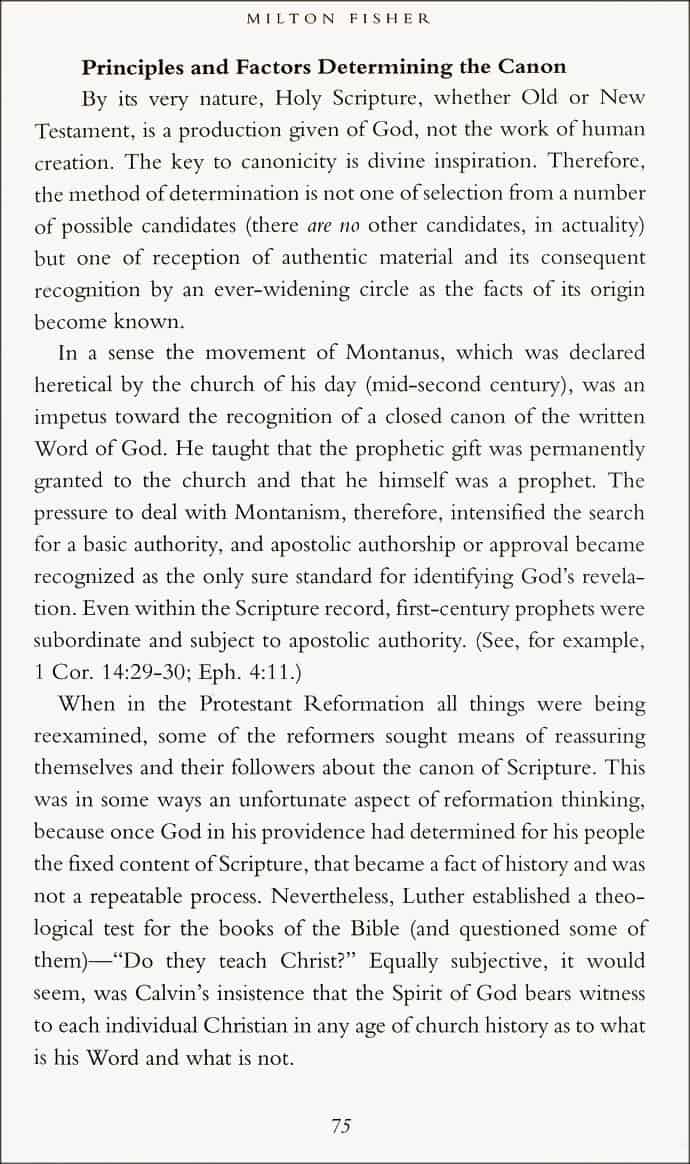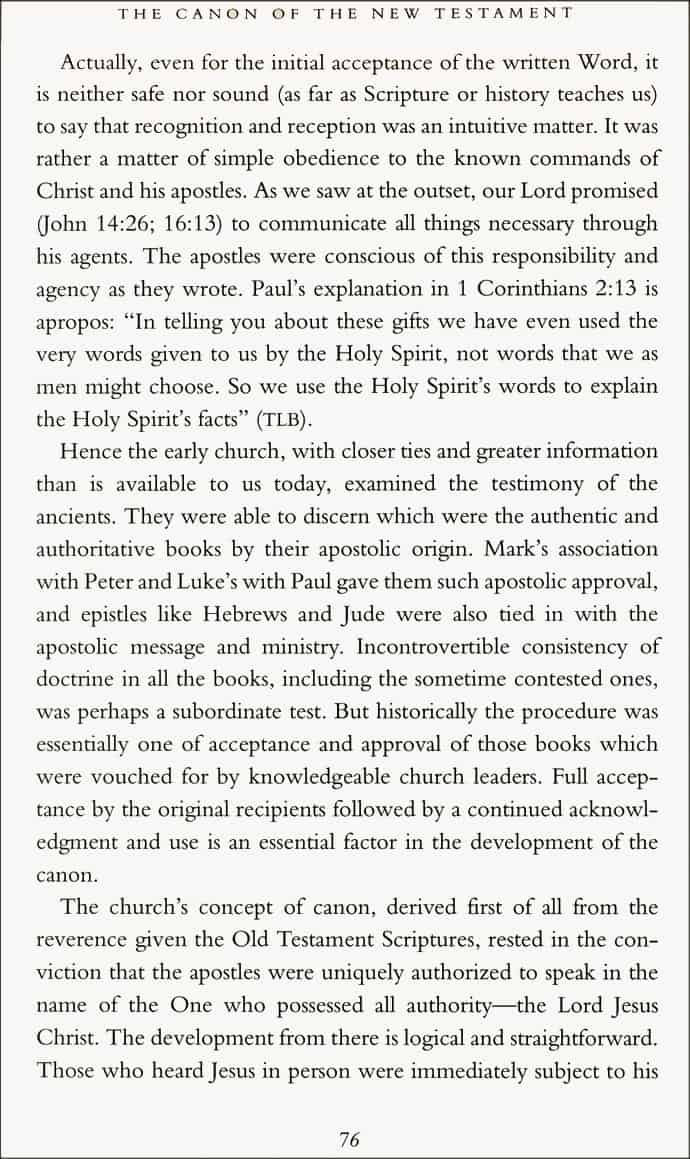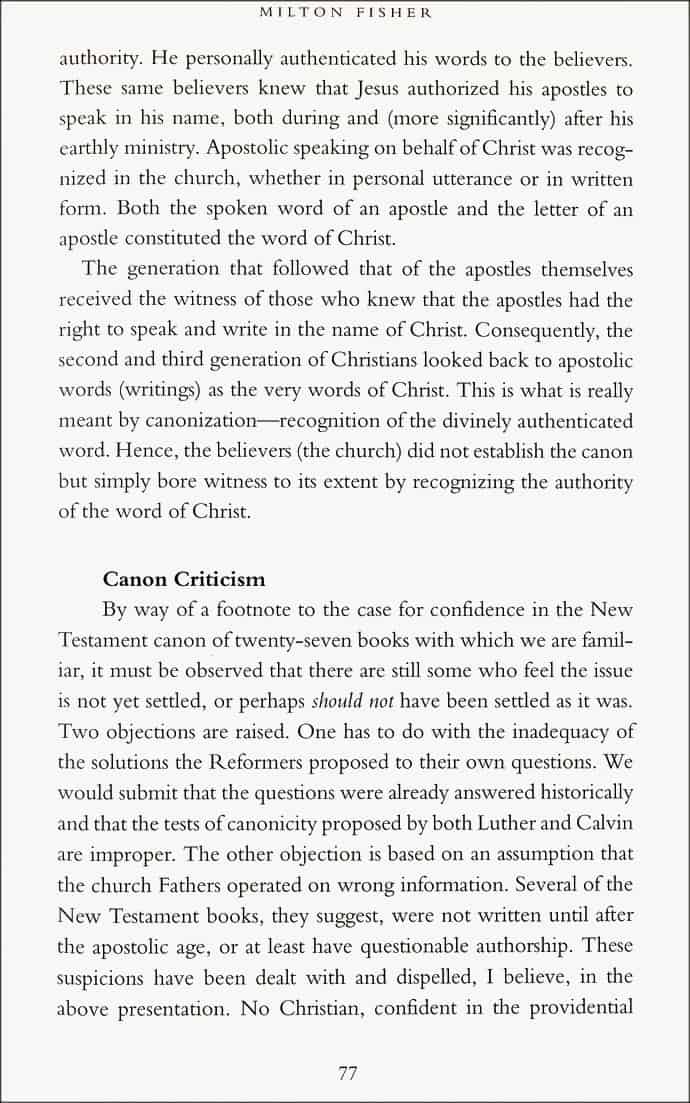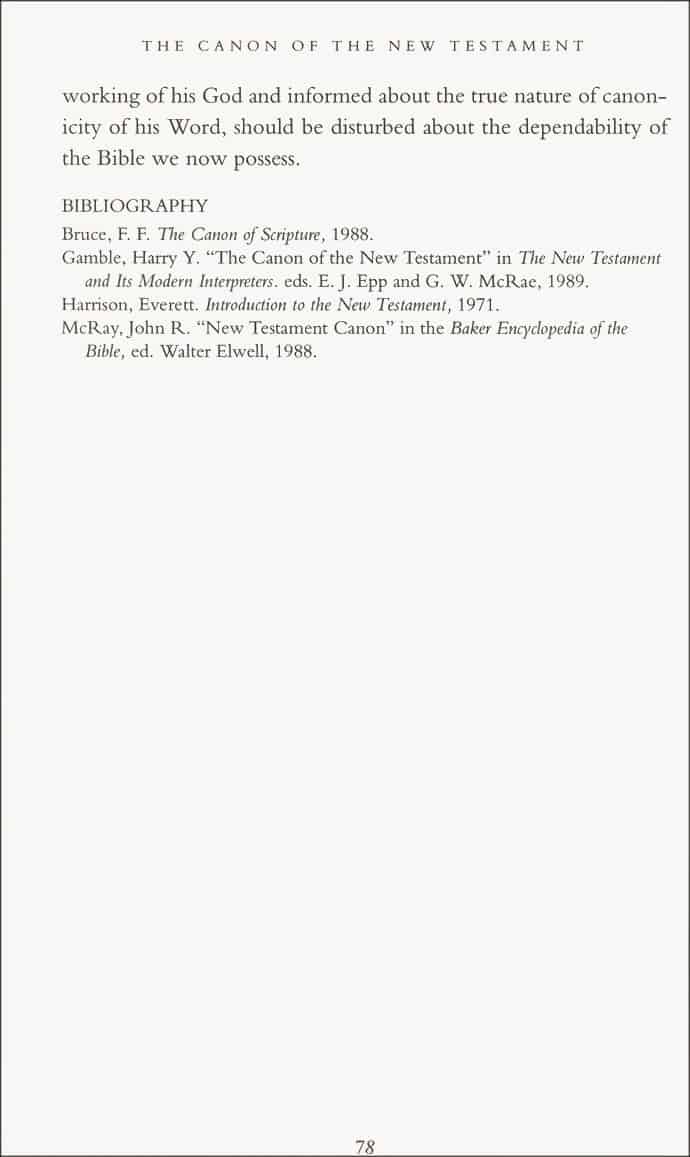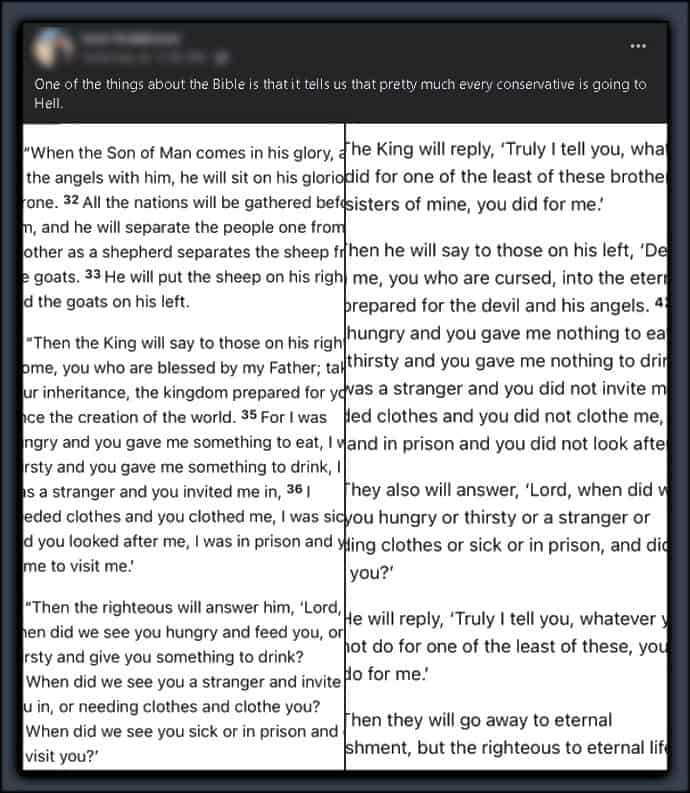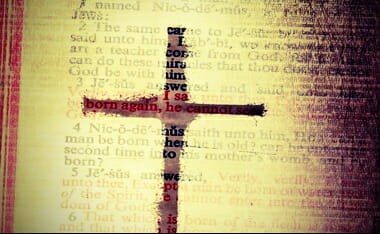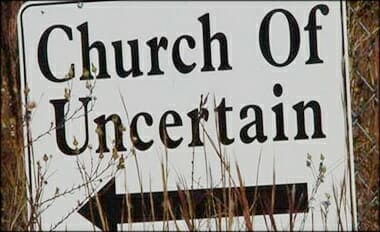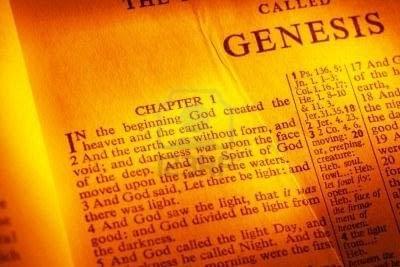……συνήσθιεν] The Judaizers who troubled the Church at this time are described, Acts 15:5, as converts belonging to the sect of the Pharisees. The prohibition against eating meat with the impure was one of the leading principles of this sect, Luke 15:2. As the agape was the recognised bond of brotherhood in the infant Church, this separation struck at the very root of Christian life. St Peter’s vision (see especially Acts 10:27, 11:3) had taught him the worthlessness of these narrow traditions. He had no scruples about living ἐθνικῶς. And when in this instance he separated himself from the Gentiles, he practically dissembled his convictions.
ὅτε δὲ ἦλθον] ‘but when they came.’ The reading ἦλθεν yields no good sense, whether we refer it to St James with Origen (c. Cels. 2:1 ἐλθόντος Ἰακώβου) or to St Peter with other writers. I have given it a place nevertheless, as an alternative reading, on account of the weight of authority in its favour: for though it can scarcely have been the word intended by St Paul, it may possibly be due to an error of the original amanuensis. For a similar instance of a manifestly false reading highly supported and perhaps to be explained in this way, see Phil. 2:1 εἴ τις σπλάγχαν καὶ οἰκτιρμοί. Such readings are a valuable testimony to the scrupulous exactness of the older transcribers, who thus reproduced the text as they found it, even when clearly incorrect. In this passage the occurrence of the same words ὅτε δὲ ἦλθεν, ver. 11, is the probable cause of the mistake.
ὑπέστελλεν καὶ ἀφώριζεν] ‘gradually withdrew and separated himself.’ Both verbs govern ἑαυτόν: compare Polyb. 7:17. 1 ὑπέστειλαν ἑαυτοὺς ὑπό τινα προπεπτωκυῖαν ὁφρύν. The words describe forcibly the cautious withdrawal of a timid person who shrinks from observation, ὑπέστελλεν denoting the partial, ἀφώριζεν the complete and final separation. The word ὑποστέλλειν is frequently used, as in the passage quoted, in describing strategical operations; and so far as it is metaphorical here, the metaphor seems to be derived from military rather than from nautical matters. Comp. στέλλεσθαι, 2 Thess. 3:6.
τοὺς ἐκ περιτομῆς] not ‘Jews’ but ‘converts from Judaism,’ for this seems to be the force of the preposition: Acts 10:45, 11:2, Col. 4:11, Tit. 1:10.
13. οἱ λοιποὶ Ἰουδαῖοι] i.e. the rest of the Jewish converts resident at Antioch, who, like St Peter, had mixed freely with the Gentiles until the arrival of their brethren from Jerusalem. The observance of Pharisaic practices with the latter was a genuine expression of bigotry, but with the Jews of Antioch and with St Peter it was ὑπόκρισις, the assumption of a part which masked their genuine feelings and made them appear otherwise than they were. The idea at the root of ὑπόκρισις is not a false motive entertained, but a false impression produced. The writer of the epistle prefixed to the Clementines, doubtless alluding to this passage, speaks of some who misrepresented Peter, as though he believed that the law was abolished, ‘but did not preach it openly’; Ep. Petr. § 2. See on ver. 11.
καὶ Βαρνάβας] ‘even Barnabas my own friend and colleague, who so lately had gone up to protect the interests of the Gentiles against the pressure of the Pharisaic brethren.’ It is not impossible that this incident, by producing a temporary feeling of distrust, may have prepared the way for the dissension between Paul and Barnabas which shortly afterwards led to their separation: Acts 15:39.
From this time forward they never again appear associated together. But on the other hand, whenever St Paul mentions Barnabas, his words imply sympathy and respect. This feeling underlies the language of his complaint here, ‘even Barnabas.’ In 1 Cor. 9:6 also he connects Barnabas with himself, as one who had laboured in the same disinterested spirit and had the same claims upon the Gentile converts. Lastly in Col. 4:10 he commends Mark to the Colossian Church, as being the cousin of Barnabas.
συναπήχθη αὐτῶν τῇ ὑποκρίσει] ‘was carried away with their dissimulation,’ as the A. V. rightly. Their dissimulation was as a flood which swept every thing away with it. Comp. 2 Pet. 3:17 ἵνα μὴ τῇ τῶν ἀθέσμων πλάνῃ συναπαχθέντες ἐκπέσητε κ.τ.λ., Zosimus Hist. 5:6 καὶ αὐτὴ δὲ ἡ Σπάρτη αυναπήγετο τῇ κοινῇ τῆς Ἑλλάδος ἁλώσει. In all these passages the dative seems to be governed by the preposition, and cannot without harshness be taken as the instrumental case.
14, 15. ‘Seeing that they had left the straight path and abandoned the true principles of the Gospel, I remonstrated with Cephas publicly. Thou thyself, though born and bred a Jew, dost nevertheless lay aside Jewish customs and livest as the Gentiles. On what plea then dost thou constrain the Gentiles to adopt the institutions of the Jews?’
14. οὐκ ὀρθοποδοῦσιν πρὸς κ.τ.λ.] i.e. ‘they diverge from the straight path of the Gospel truth.’ The word ὀρθοποδεῖν appears not to occur elsewhere, except in later ecclesiastical writers, where its use may be traced to this passage of St Paul. Its classical equivalent is εὐθυπορεῖν. The preposition πρὸς here denotes not the goal to be attained, but the line of direction to be observed: see Winer § 49. p. 505. For ἡ ἀλήθεια τοῦ εὐαγγελίου see the note on 2:5.
εἶπον] Were all the concluding verses of the chapter actually spoken by St Paul at the time, or is he adding a comment while narrating the incident afterwards to the Galatians; and if so, where does the text cease and the comment begin? To this question it seems impossible to give a definite answer. St Paul’s narrative in fact loses itself in the reflexions suggested by it. Text and comment are so blended together that they cannot be separated without violence. The use of the word ἁμαρτωλοί, vv. 15, 17, marks the language of one speaking as a Jew to Jews, and therefore may be regarded as part of the original remonstrance; and yet, though there is no break in the continuity from that point onward, we find at the end of the chapter that St Paul’s thoughts and language have drifted away from Peter at Antioch to the Judaizers in Galatia. For similar instances where the direct language of the speaker is intermingled with the after comment of the narrator, see John 1:15–1:18, where the testimony of the Baptist loses itself in the thoughts of the Evangelist, and Acts 1:16–1:21, where St Peter’s allusion to the death of Judas is interwoven with the after explanations of St Luke.
Ἰουδαῖος ὑπάρχων] almost equivalent to φύσει Ἰουδαῖοι below; see 1:14. In such cases ὑπάρχων implies a contrast between the original and the after state, e.g. in Phil. 2:6. Here it is very emphatic; ‘If you, born and bred a Jew, discard Jewish customs, how unreasonable to impose them on Gentiles.’
ἐθνικῶς ζῇς] i.e. mix freely with the Gentiles and thus of necessity disregard the Jewish law of meats. The present tense describes St Peter’s general principles, as acted upon long before at Cæsarea (Acts 10:28), and just lately at Antioch (ver. 12), though at the exact moment when St Paul was speaking, he was living Ἰουδαϊκῶς and not ἐθνικῶς.
οὐχ Ἰουδαϊκῶς] The best MSS. agree in reading the aspirated form οὐχ. For other examples of anomalous aspirates in the Greek Testament see Winer § 5. p. 48, and comp. the note on Phil. 2:23 ἀφίδω. In this particular instance the aspirate may perhaps be accounted for by the yh with which the Hebrew word (יהודים) represented by Ἰουδαῖοι commences.
ἀναγκάζεις] i.e. practically oblige them, though such was not his intention. The force of his example, concealing his true principles, became a species of compulsion.
Ἰουδαΐζειν] ‘to adopt Jewish customs,’ opposed to ἐθνικῶς ζῇς which in connexion with Ἰουδαῖος ὑπάρχων is equivalent to ἑλληνίζεις; comp. Esth. 8:17 καὶ πολλοὶ τῶν ἐθνῶν περιετέμοντο καὶ Ἰουδάϊζον διὰ τὸν φόβον τῶν Ἰουδαίων, Plug. Vit. Cic. 7 ἔνοχος τῷ Ἰουδαΐζειν. See the note on Ἰουδαϊσμός, 1:13.
15, 16. ‘Only consider our own case. We were born to all the privileges of the Israelite race: we were not sinners, as we proudly call the Gentiles. What then? We saw that the observance of law would not justify any man, that faith in Jesus Christ was the only means of justification. Therefore we turned to a belief in Christ. Thus our Christian profession is itself an acknowledgment that such observances are worthless and void, because, as the Scripture declares, no flesh can be justified by works of law.’
Of many constructions proposed, the simplest and best is to understand the substantive verb in ver. 15, ‘We (are) Jews by birth etc.’ The δὲ of ver. 16, which is omitted in the received text, is certainly genuine.
15. φύσει Ἰουδαῖοι] ‘Jews by birth, not only not Gentiles, but not even proselytes. We inherited the Jewish religion. Everything was done for us, which race could do.’ See especially Phil. 3:4, 5.
ἐξ ἐθνῶν] Not ‘of Gentile descent,’ but ‘taken from, belonging to the Gentiles’; comp. Acts 15:23.
ἁμαρτωλοί] ‘sinners.’ The word was almost a synonyme for ἔθνη in the religious phraseology of the Jews. See 1 Macc. 2:44, Clem. Hom. 11:16 οὕτως ὡς οὐχὶ Ἰουδαῖος, ἁμαρτωλὸς κ.τ.λ.; and compare Luke 6:32, 33 with Matt. 5:47, and especially Matt. 26:45 with Luke 18:32. Here ἁμαρτωλοὶ is used in preference to ἔθνη, not without a shade of irony, as better enforcing St Paul’s argument. See the note on ver. 17.
16. ἐὰν μή] retains its proper meaning, but refers only to οὐ δικαιοῦται, ‘He is not justified from works of law, he is not justified except through faith.’ See the note on 1:19.
καὶ ἡμεῖς] ‘we ourselves,’ notwithstanding our privileges of race. Compare καὶ αὐτοί, ver. 17.
ἐπιστεύσαμεν] ‘became believers.’ See the note on 2 Thess. 1:10. The phrase πιστεύειν εἴς or ἐπί τινα is peculiarly Christian; see Winer § 31. p. 267. The constructions of the LXX are πιστεύειν τινί, rarely πιστεύειν ἐπί τινι or ἔν τινι, and once only ἐπί τινα, Wisd. 12:2 πιστεύειν ἐπὶ Θεόν. The phrase, which occurs in the revised Nicene and other creeds, πιστεύειν εἰς ἐκκλησίαν, though an intelligible, is yet a lax expression, the propriety of which was rightly disputed by many of the fathers, who maintained that πιστεύειν εἰς should be reserved for belief in God or in Christ. See the passages in Suicer Thesaur. s.v. πιστεύειν, and Pearson On the Creed Art. 9.
ἐκ πίστεως Χριστοῦ] It seems almost impossible to trace the subtle process which has led to the change of prepositions here. In Rom. 3:30, on the other hand, an explanation is challenged by the direct opposition of ἐκ πίστεως and διὰ τῆς πίστεως. Both prepositions are used elsewhere by St Paul with δικαιοῦν, δικαιοσύνη, indifferently; though where very great precision is aimed at, he seems for an obvious reason to prefer διά, as in Ephes. 2:8, 9, Phil. 3:9 μὴ ἔχων ἐμὴν δικαιοσύνην τὴν ἐκ νόμου ἀλλὰ τὴν διὰ πίστεως Χριστοῦ κ.τ.λ., which words present an exact parallel to the former part of this verse, οὐκ ὲξ ἔργων νόμου, ἐὰν μὴ διὰ πίστεως Ἰησοῦ Χριστοῦ. Faith is strictly speaking only the means, not the source of justification. The one preposition (διὰ) excludes this latter notion, while the other (ἐκ) might imply it. Besides these we meet also with ἐπὶ πίστει (Phil. 3:9), but never διὰ πίστιν, ‘propter fidem,’ which would involve a doctrinal error. Compare the careful language in the Latin of our Article 11, ‘per fidem, non propter opera.’
ὅτι] is the best supported, and doubtless the correct reading. The reading of the received text διότι has probably been imported from the parallel passage, Rom. 3:20.
ὅτι ἐξ ἔργων κ.τ.λ.] A quotation from the Old Testament, as appears from the Hebraism οὐ πᾶσα, and from the introductory ὅτι. This sentence indeed would be an unmeaning repetition of what has gone before, unless the Apostle were enforcing his own statements by some authoritative declaration. The words are therefore to be regarded as a free citation of Psalm 143:2 οὐ δικαιωθήσεται ἐνώπιόν σου πᾶς ζῶν. For πᾶς ζῶν, a very common Hebrew synonyme, πᾶσα σάρξ (מל־בשר) is substituted by St Paul. In Rom. 3:20 the passage is quoted in the same form as here. In both instances St Paul adds ἐξ ἔργων νόμου as a comment of his own, to describe the condition of the people whom the Psalmist addressed. In the context of the passage in the Romans (3:19) this comment is justified by his explanation, that ‘whatever is stated in the law applies to those under the law.’
For οὐ πᾶσα see Winer § 26. p. 214 sq.
17, 18, 19. ‘Thus to be justified in Christ, it was necessary to sink to the level of Gentiles, to become ‘sinners’ in fact. But are we not thus making Christ a minister of sin? Away with the profane thought. No! the guilt is not in abandoning the law, but in seeking it again when abandoned. Thus, and thus alone, we convict ourselves of transgression. On the other hand, in abandoning the law we did but follow the promptings of the law itself. Only by dying to the law could we live unto God.’
17. Among a vast number of interpretations which have been given of this verse, the following alone deserve consideration.
First; We may regard Χριστὸς ἁμαρτίας διάκονος as a conclusion logically inferred from the premisses, supposing them to be granted; ‘If in order to be justified in Christ it was necessary to abandon the law, and if the abandonment of the law is sinful, then Christ is made a minister of sin.’ In this case ἄρα is preferable to ἆρα.
If the passage is so taken, it is an attack on the premisses through the conclusion which is obviously monstrous and untenable. Now the assumptions in the premisses are two-fold: (1) ‘To be justified in Christ it is necessary to abandon the law,’ and (2) ‘To abandon the law is to become sinners’; and as we suppose one or other of these attacked, we shall get two distinct meanings for the passage, as follows: (1) It is an attempt of the Judaizing objector to show that the abandonment of the law was wrong, inasmuch as it led to so false an inference: ‘To abandon the law is to commit sin; it must therefore be wrong to abandon the law in order to be justified in Christ, for this is to make Christ a minister of sin’: or (2) It is an argument on the part of St Paul to show that to abandon the law is not to commit sin; ‘It cannot be sinful to abandon the law, because it is necessary to abandon the law in order to be justified in Christ, and thus Christ would be made a minister of sin.’
Of these two interpretations, the latter is adopted by many of the fathers. Yet, if our choice were restricted to one or other, the former would seem preferable, for it retains the sense of ἁμαρτωλοί (‘sinners’ from a Jewish point of view), which it had in ver. 15, and is more consistent with the indicative εὑρέθημεν, this proposition being assumed as absolutely true by the Jewish objector. But on the other hand, it forms an awkward introduction to the verse which follows.
It is probable therefore that both should be abandoned in favour of another explanation: For
Secondly; We may regard Χριστὸς ἁμαρτίας διάκονος as an illogical conclusion deduced from premisses in themselves correct; ‘Seeing that in order to be justified in Christ it was necessary to abandon our old ground of legal righteousness and to become sinners (i.e. to put ourselves in the position of the heathen), may it not be argued that Christ is thus made a minister of sin?’ This interpretation best develops the subtle irony of ἁμαρτωλοί; ‘We Jews look down upon the Gentiles as sinners: yet we have no help for it but to become sinners like them.’ It agrees with the indicative εὑρέθημεν, and with St Paul’s usage of μὴ γένοιτο which elsewhere in argumentative passages always negatives a false but plausible inference from premisses taken as granted, And lastly, it paves the way for the words διὰ νόμου νόμῳ ἀπέθανον which follow, In this case ἆρα is to be preferred to ἄρα, because it at once introduces the inference as a questionable one. It may be added also in favour of ἆρα, that elsewhere μὴ γένοιτο follows an interrogation. Ἀρα expresses bewilderment as to a possible conclusion. Any attempt further to define its meaning seems not to be justified either by the context here, or by its usage elsewhere. Ἄρα hesitates, while ἄρα concludes.
εὑρέθημεν] involves more or less prominently the idea of a surprise: comp. Rom. 7:10, 2 Cor. 11:12, 12:20. Its frequent use however must be traced to the influence of the Aramaic dialect: see Cureton Corp, Ign. p. 271.
ἁμαρτίας διάκονος] while yet He is δικαιοσύνης διάκονος, thus making a direct contradiction in terms.
μὴ γένοιτο] ‘Nay, verily,’ ‘A way with the thought.’ This is one out of several LXX renderings of the Hebrew חלילה (‘ad profana’ and so ‘absit,’ see Gesenius Thes. p. 478). Another rendering of the same is ἵλεως (sc. ὁ Θεὸς) which occurs Matt. 16:22 ἵλεώς σοι Κύριε, ‘far be it from thee, Lord’: see Glass. Phil. Sacr. p. 538. Μὴ γένοιτο is not however confined to Jewish and Christian writings, but is frequent for instance in Arrian; see Raphel Annot. Rom. 3:4.
18. ‘If, after destroying the old law of ordinances, I attempt to build it up again, I condemn myself, I testify to my guilt in the work of destruction.’ The pulling down and building up have reference doubtless to the Mosaic law, though expressed as a general maxim (ταῦτα). The difficulty however is to trace the connexion in γάρ.
With the interpretation of ver. 17 adopted above, it seems simplest to attach γὰρ to μὴ γένοιτο, ‘Nay verily, for, so far from Christ being a minister of sin, there is no sin at all in abandoning the law: it is only converted into a sin by returning to the law again.’ For this use of γὰρ after μὴ γένοιτο comp, Rom. 9:14, 15, 11:1.
παραβάτην ἐμαυτὸν συνιστάνω] ‘I make myself out, establish myself, a transgressor.’ It will have been seen that much of the force of the passage depends on the sense which the Jews attached to ἁμαρτωλός. Having passed on from this to ἀμαρτία, St Paul at length throws off the studied ambiguity of ἁμαρτωλός (‘a non-observer of the law,’ and ‘a sinner’) by substituting the plain term παραβάτης.
ἐμαυτὸν συνιστάνω is opposed to Χριστὸς ἁμαρτίας διάκονος, though from its position ἐμαυτὸν cannot be very emphatic.
συνιστάνω] ‘I prove,’ like συμβιβάζω, as Rom. 3:5, 5:8; comp. 2 Cor. 3:1.
19. Establishing the statement of the foregoing verse: ‘For in abandoning the law, I did but follow the leading of the law itself.’
ἐγώ] Not ‘I Paul’ as distinguished from others, for instance from the Gentile converts, but ‘I Paul, the natural man, the slave of the old covenant.’ The emphasis on ἐγὼ is explained by the following verse, ζῶ δὲ οὐκέτι ἐγώ κ.τ.λ.
διὰ νόμου νόμῳ ἀπέθανον] In what sense can one be said through law to have died to law? Of all the answers that have been given to this question, two alone seem to deserve consideration. The law may be said in two different ways to be παιδαγωγὸς εἰς Χριστόν. We may regard
- Its economical purpose. ‘The law bore on its face the marks of its transitory character. Its prophecies foretold Christ. Its sacrifices and other typical rites foreshadowed Christ. It was therefore an act of obedience to the law, when Christ came, to take Him as my master in place of the law.’ This interpretation however, though quite in character with St Paul’s teaching elsewhere, does not suit the present passage; For (1) The written law—the Old Testament—is always ὁ νόμος. At least it seems never to be quoted otherwise. Νόμος without the article is ‘law’ considered as a principle, exemplified no doubt chiefly and signally in the Mosaic law, but very much wider than this in its application. In explaining this passage therefore, we must seek for some element in the Mosaic law which it had in common with law generally, instead of dwelling on its special characteristics, as a prophetic and typical dispensation. Moreover, (2) the interpretation thus elicited makes the words διὰ νόμου νόμῳ ἀπέθανον an appeal rather to the reason and intellect, than to the heart and conscience; but the phrases ‘living unto God,’ ‘being crucified with Christ,’ and indeed the whole tenour of the passage, point rather to the moral and spiritual change wrought in the believer. Thus we are led to seek the explanation of this expression rather in
- Its moral effects. The law reveals sin; it also provokes sin; nay, in a certain sense, it may be said to create sin, for ‘sin is not reckoned where there is no law’ (Rom. 5:13). Thus the law is the strength of sin (1 Cor. 15:56). At the same time it provides no remedy for the sinner. On the contrary it condemns him hopelessly, for no one can fulfil all the requirements of the law. The law then exercises a double power over those subject to it; it makes them sinners, and it punishes them for being so. What can they do to escape? They have no choice but to throw off the bondage of the law, for the law itself has driven them to this. They find the deliverance, which they seek, in Christ. See Rom. 7:24, 25, and indeed the whole passage, Rom. 5:20–8:11. Thus then they pass through three stages, (1) Prior to the law—sinful, but ignorant of sin; (2) Under the law—sinful, and conscious of sin, yearning after better things; (3) Free from the law—free and justified in Christ. This sequence is clearly stated Rom. 5:20. The second stage (διὰ νόμου) is a necessary preparation for the third (νόμῳ ἀπέθανον). ‘Proinde,’ says Luther on 3:19 (the edition of 1519), ‘at remissio propter salutem, ita praevaricatio propter remissionem, ita lex propter transgressionem.’
What the Mosaic ordinances were to the Jews, other codes of precepts and systems of restraints were in an inferior degree and less efficaciously to other nations. They too, like the Jews, had felt the bondage of law in some form or other. See 4:9, 5:1, and the note on 4:11.
νόμῳ ἀπέθανον] ‘I died to law.’ For the dative comp. Rom. 6:2, 11 (τῇ ἁμαρτίᾳ), and for the idea of ‘dying to the law’ Rom. 7:1–7:6, esp. ver. 4 καὶ ὑμεῖς ἐθανατώθητε τῷ νόμῳ, and ver. 6 κατηργήθημεν ἀπὸ τοῦ νόμου ἀποθανόντες ἐν ᾧ κατειχόμεθα (literally, ‘we were nullified, i.e. discharged, by death from the law in which we were held’).
20, 21. ‘With Christ I have been crucified at once to the law and to sin. Henceforth I live a new life—yet not I, but Christ liveth it in me. This new life is not a rule of carnal ordinances; it is spiritual, and its motive principle is faith in the Son of God who manifested His love for me by dying for my sake. I cannot then despise God’s grace. I cannot stultify Christ’s death by clinging still to a justification based upon law.’
20. An expansion of the idea in the last verse.
Χριστῷ συνεσταύρωμαι] ‘I have been crucified with Christ.’ A new turn is thus given to the metaphor of death. In the last verse it was the release from past obligations; here it is the annihilation of old sins. The two however are not unconnected. Sin and law loose their hold at the same time. The sense of feebleness, of prostration, to which a man is reduced by the working of the law, the process of dying in fact, is the moral link which unites the two applications of the image: see Rom. 7:5, 9–11. Thus his death becomes life. Being crucified with Christ, he rises with Christ, and lives to God.
The parallel passage in the Romans best illustrates the different senses given to death. See also, for a similar and characteristic instance of working out a metaphor, the different applications of ἡμέρα in 1 Thess. 5:2–5:8.
For the idea of dying with Christ etc., see Rom. 6:6 ὁ παλαιὸς ἡμῶν ἄνθρωπος συνεσταυρώθη: comp. Gal. 5:24, 6:14, Rom. 6:8, Col. 2:20, ἀποθανεῖν σὺν Χριστῷ, and Rom. 6:4, Col. 2:12, συνταφῆναι. Comp. Ignat. Rom. § 7 ὁ ἐμὸς ἔρως ἐσταύρωται. The correlative idea of rising and reigning with Christ is equally common in St Paul.
ζῶ δὲ οὐκέτι ἐγώ] The order is significant; ‘When I speak of living, I do not mean myself, my natural being. I have no longer a separate existence. I am merged in Christ.’ See on ἐγὼ ver. 19.
ὃ δὲ νῦν ζῶ] Not exactly ἣν νῦν ζῶ ζωήν, but ὃ limits and qualifies the idea of life: ‘So far as I now live in the flesh, it is a life of faith’: comp. Rom. 6:10 ὃ γὰρ ἀπέθανεν, τῇ ἁμαρτίᾳ ἀπέθανεν ἐφάπαξ, ὃ δὲ ζῇ, ζῇ τῷ Θεῷ, Plut. Mor. p. 100 F ὃ καθεύδουσι, τοῦ σώματος ὕπνος ἐστὶ καὶ ἀνάπαυσις.
νῦν] ‘now’: his new life in Christ, as opposed to his old life before his conversion; not his present life on earth, as opposed to his future life in heaven; for such a contrast is quite foreign to this passage.
ἐν πίστει] ‘in faith,’ the atmosphere as it were which he breathes in this his new spiritual life.
The variation of reading here is perplexing. For τοῦ υἱοῦ τοῦ Θεοῦ may be pleaded the great preponderance of the older authorities: for τοῦ Θεοῦ καὶ Χριστοῦ, the testimony of a few ancient copies, and the difficulty of conceiving its substitution for the other simpler reading.
με … ἐμοῦ] ‘loved me, gave Himself for me.’ He appropriates to himself, as Chrysostom observes, the love which belongs equally to the whole world. For Christ is indeed the personal friend of each man individually; and is as much to him, as if He had died for him alone.
21. οὐκ ἀθετῶ κ.τ.λ.] ‘I do not set at nought the grace of God. Setting at nought I call it: for, if righteousness might be obtained through law, then Christ’s death were superfluous.’ For ἀθετῶ ‘to nullify’ see Luke 7:30, 1 Cor. 1:19: its exact sense here is fixed by δωρεὰν ἀπέθανεν. ‘The grace of God’ is manifested in Christ’s death. The connexion of γὰρ is with the idea of ἀθετῶ, and may be explained by a supplied clause, as above.
δωρεάν] not ‘in vain,’ but ‘uselessly, without sufficient cause,’ or, as we might say, ‘gratuitously,’ John 15:25 ἐμίσησάν με δωρεάν (Ps. 34:19); comp. LXX of Ps. 34:7 δωρεὰν ἔκρνψάν μοι διαφθοράν, Hebr. חנם, where Symmachus had ἀναιτίως; Ecclas. 20:23.
Joseph Barber Lightfoot, ed., St. Paul’s Epistle to the Galatians. A Revised Text with Introduction, Notes, and Dissertations., 4th ed., Classic Commentaries on the Greek New Testament (London: Macmillan and Co., 1874), 112–120.


